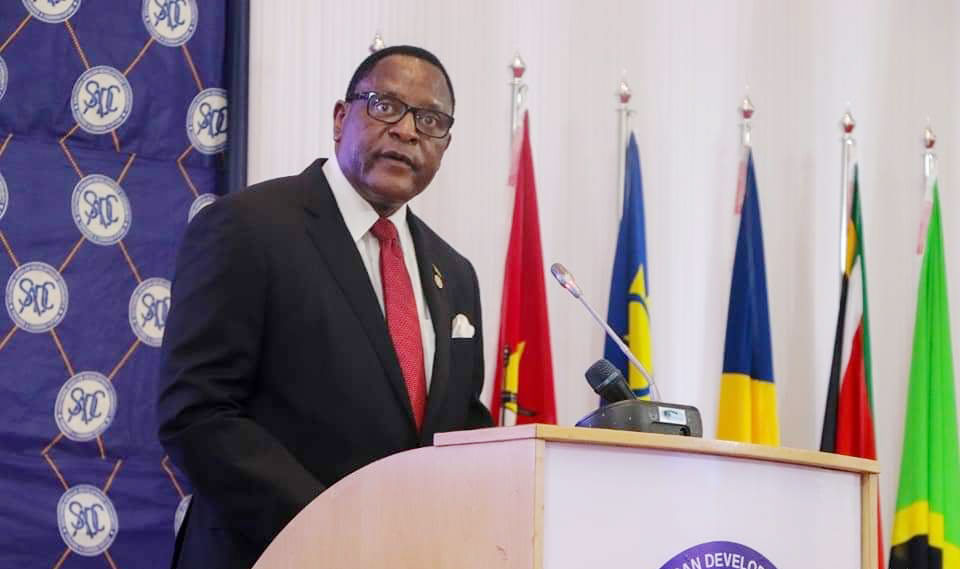Lift sanctions against Zimbabwe—Chakwera
President Lazarus McCarthy Chakwera, in his capacity as Southern African Development Community (Sadc) chairperson, has called for the lifting of all sanctions imposed on Zimbabwe.
In a statement issued yesterday, he said lifting all sanctions will facilitate socio-economic recovery and enable Zimbabwe to meet her national and regional economic development plans

The statement reads in part: “As a region, we remain adamant that the sanctions imposed on Zimbabwe, whether targeted or restrictive, are a fundamental constraint and hindrance to the country’s prospects of economic recovery, human security and sustainable growth.”
Chakwera said the trajectory of the global economy is on rebuilding and recovery.
He said: “To this effect, foreign direct investment [FDI], by virtue of being the largest source of foreign capital, remains a critical catalyst and facilitator of growth.
“There is no doubt that the lifting of all sanctions will facilitate socioeconomic recovery, and enable Zimbabwe to meet her national and regional economic development plans as well as effectively manage her international obligations.”
The Sadc chairperson said the global impact of the Covid-19 pandemic, coupled with the recent devastating cyclones Chalane in December 2020 and Eloise in February 2021, have added socioeconomic pressures that continue to impact negatively on the lives and livelihoods of the people of Zimbabwe.
He said the sanctions worsen the perception of Zimbabwe as being in a high risk profile category, thereby diminishing the credibility of investment and investor confidence while exacerbating investment risks.
Chakwera has since called on Zimbabwe and Sadc States to engage in meaningful and constructive dialogue to consolidate the rule of law, democracy, governance and human rights in the country in Zimbabwe.
But through a Twitter post, the United States Embassy in Harare yesterday said blaming sanctions is a convenient scapegoat to distract the public from real reasons behind Zimbabwe’s economic challenges which are corruption and economic mismanagement, and failure to respect human rights and uphold the rule of law.
The US Embassy said: “The Zimbabwe sanctions programme only targets those who engage in corruption, violate human rights, and undermine democratic process. There is no US trade embargo on Zimbabwe, if an individual or entity is not on sanctions list, US companies can trade with that individual.”
The US further said they use sanctions to encourage sanctioned individuals to cease their malign activities.
The United Kingdom (UK) through its Ambassador to Zimbabwe Melanie Robinson also agreed with the US, saying they are ready to mend the sour relationship between the two countries only if Zimbabwe can adopt economic and political reforms.
She told Zimbabwe’s Daily Mail on Sunday: “Our position is that the economic and political reforms President Emmerson Mnangagwa set out at the beginning of his presidency remain the best route to achieving that future and with it the further strengthening of the relationship between our two countries.
“But I am afraid we, like many others, have also been disappointed by the lack of pace and depth of reforms [overall], and sadly by human rights violations and on-going corruption.”
In the early 2000s, Zimbabwe under former president Robert Mugabe expropriated land from white farmers without compensation and banned them from land ownership in that country, which resulted in biting sanctions by mostly the UK and US.
The sanctions apply to 85 individuals, including Mnangagwa and 56 companies or organisations.
In 2019, the 16-member Sadc bloc declared October 25 Anti- Sanctions Day in solidarity with Zimbabwe.





